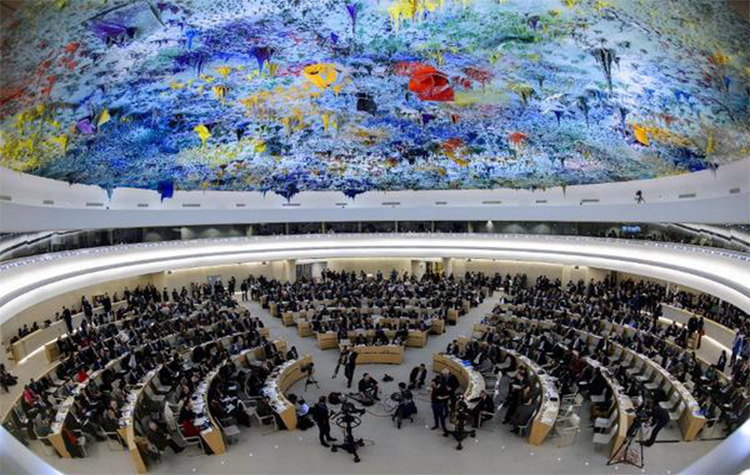31st Regular Session of the UN Human Rights Council
Item 4: Human rights situations that require the Council’s attention (General Debate)
Oral Statement Delivered by Pimsiri Petchnamrob
On behalf of the Asian Forum for Human Rights and Development (FORUM-ASIA)
Tuesday, 15 March 2016
Mr. President,
FORUM-ASIA expresses concern over the deteriorating human rights situation in several Asian countries.
In Thailand, despite the military Government’s claim of a benchmarked roadmap toward the restoration of democracy, suppression of dissent is ongoing. On January 4 democracy activists were arrested and detained for peacefully protesting and calling for investigation into corruption.[1] Another example is the judicial harassment of Sirikan Charoensiri [2], a human rights lawyer representing 14 student activists arrested for organising protests that called for an end to the military rule and a return to democracy. We urge Thailand to immediately end all arbitrary arrests, incommunicado detentions in military compounds, and civilian trials in military court. The government should further allow open, public debate on the current draft Constitution to ensure transparency and public participation.
In the Maldives, we call your attention to the criminalisation of political dissent with draconian anti-terrorism laws and a docile judiciary. Many political opponents are already either behind bars or in exile. In February, opposition leader, Sheikh Imran Abdulla, was sentenced to 12 years imprisonment on trumped up terrorism charges under the 1990 Anti-Terrorism Act for speaking against the persecution of the opposition at a rally in May 2015. While his conviction casts a chilling effect on basic rights, broad and vague provisions in the new Anti-Terrorism Act enacted in October 2015 add to our concerns on the freedoms of expression, assembly and association in the country.[3] We reiterate our call for the review or repeal of all restrictive legislation including the Anti-Terrorism Act and Freedom of Peaceful Assembly Act in conformity with the Maldives’ international human rights obligations.
In Malaysia, democratic space continues to be limited.[4] The Government blocked access to the online news portal ‘Malaysian Insider’ last week because of critical coverage on corruption linked to the Government. In February 2016, the High Court upheld the ruling that Adam Adli, a prominent student activist was guilty of sedition, following the High Court’s nine-month sentence against Hishamuddin Rais in January under the same Act.[5] We urge the Government of Malaysia to drop all politically motivated charges against human rights defenders, opposition politicians and activists, and repeal all regressive laws such as the 1928 Sedition Act and the 2012 Peaceful Assembly Act.
Lastly we are gravely concerned by targeted attacks and killings of online activists and publishers in Bangladesh. We urge the Government to protect freedom of expression in the context of religion for all individuals and all communities.[6]
Thank you, Mr. President.
Click here to download the oral statement (PDF)
[1] https://forum-asia.org/?p=20061.
[2] https://forum-asia.org/?p=20123.
[3] Maldivian Democracy Network, 17 November 2015, Review of the Anti-Terrorism Act 2015.
[4] Statement by Zeid Ra’ad Al Hussein, United Nations High Commissioner for Human Rights, to the Human Rights Council’s 31st session, 10 March 2016, http://ohchr.org/EN/NewsEvents/Pages/DisplayNews.aspx?NewsID=17200&LangID=E.
[5] https://forum-asia.org/?p=20196.
[6] Jakarta Recommendations on Freedom of Expression in the Context of Religion, https://forum-asia.org/uploads/wp/2015/07/Jakarta-Recommendations.pdf.




